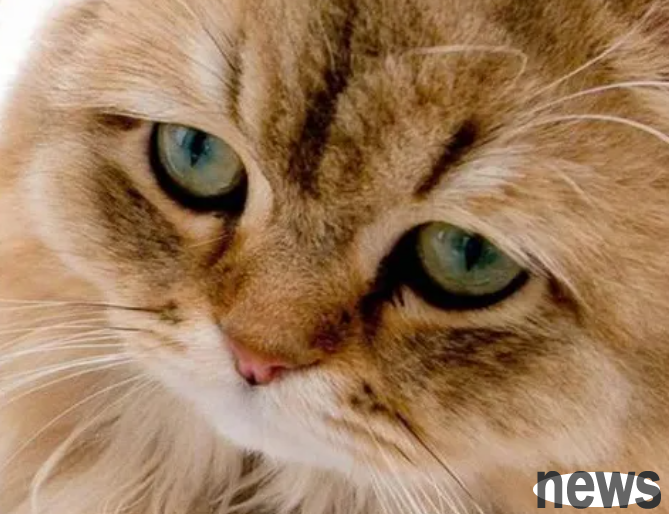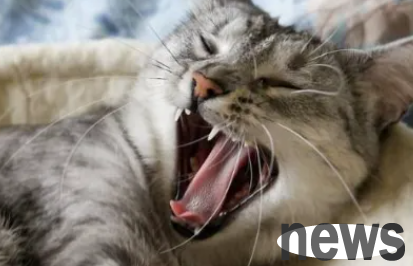Cats usually show extremely high patience and often suffer silently even when they are sick.
However, there are nine obvious signs when a cat is sick, and these signs are easily overlooked by its owner. How much do you know?

1. Cats with abnormally healthy food eat regularly and have a stable food. However, when the cat's food consumption changes abnormally, it means that there may be problems with its body. If a cat has a decreased appetite and does not eat for a long time, it may be due to difficulty in eating, especially oral problems. If the cat's appetite suddenly increases greatly, the cat shoveler also needs to be vigilant, which may also be a signal of illness.
2. A cat is not mentally motivated. A cat is usually a sign of illness. Pain or physical discomfort can make the cat look listless and lose interest in the things you like most on weekdays. If your cat's mental state suddenly changes, the shoveler should intervene in time to find out the cause.
3. Cats usually walk lightly and well. If you find that a cat is dragging, lagging, or afraid to touch the ground with the soles of her feet, it means that there may be problems with its limbs. This may be caused by injury to the flesh pad, stabbing a foreign object, or falling or hitting it.
4. Abnormal respiratory rate When an abnormality occurs in a cat's body, its respiratory rate will also change. The cat's breathing may become rapid, with obvious breathing sounds, and it looks very uncomfortable. Although cats can endure pain, the pain cannot be concealed. If the cat has abnormal breathing for a long time, the shoveler should take it to the hospital immediately.

5. Frequent drooling. Frequent drooling is an abnormal phenomenon. The shoveler should check the cat's mouth. A healthy cat's gums should be bright pink. If the gums are swollen and bright red, it may be an oral problem, and sometimes it may be accompanied by bad breath.
6. Friction of butts. Cats often rub their butts because they are unbearable itching and may have parasites in their bodies. These parasites can cause anal discomfort in cats, which relieve itching by rubbing. The shoveler should deworm the cat in time to prevent gastrointestinal discomfort or weight loss.
7. Frequent vomiting. Occasional vomiting in cats may be a normal phenomenon of accidentally ingesting foreign bodies or erectile dysfunction. But if vomiting is frequent, it may be a precursor to physical illness, usually caused by gastrointestinal abnormalities or parasitic infections. Specific issues need to be determined through testing.
8. The feces of cats with unusually healthy fathers should be formed and striped. If the cat has difficulty defecation and is accompanied by meowing, it may be constipation, and the shoveler needs to replenish the cat more water. If the feces are too thin, it means that the cat has abnormal gastrointestinal intestines, which may be caused by inflammation or parasitic infection, and sometimes there will be a sour smell. The shoveler needs to strengthen the management of the health of the cat's gastrointestinal health.
9. Cats with abnormal urethra can reflect their physical condition. The cat should pay attention to the cat's urination problem. If you have difficulty urinating, hematuria, etc., you need to be highly vigilant, as this may be a urinary tract problem, such as urinary occlusion or stones. Cats do not like to drink water themselves, and cat owners can indirectly increase their water consumption by feeding cats snacks that can be soaked in water.

 5. Frequent drooling. Frequent drooling is an abnormal phenomenon. The shoveler should check the cat's mouth. A healthy cat's gums should be bright pink. If the gums are swollen and bright red, it may be an oral problem, and sometimes it may be accompanied by bad breath. 6. Friction of butts. Cats often rub their butts because they are unbearable itching and may have parasites in their bodies. These parasites can cause anal discomfort in cats, which relieve itching by rubbing. The shoveler should deworm the cat in time to prevent gastrointestinal discomfort or weight loss. 7. Frequent vomiting. Occasional vomiting in cats may be a normal phenomenon of accidentally ingesting foreign bodies or erectile dysfunction. But if vomiting is frequent, it may be a precursor to physical illness, usually caused by gastrointestinal abnormalities or parasitic infections. Specific issues need to be determined through testing. 8. The feces of cats with unusually healthy fathers should be formed and striped. If the cat has difficulty defecation and is accompanied by meowing, it may be constipation, and the shoveler needs to replenish the cat more water. If the feces are too thin, it means that the cat has abnormal gastrointestinal intestines, which may be caused by inflammation or parasitic infection, and sometimes there will be a sour smell. The shoveler needs to strengthen the management of the health of the cat's gastrointestinal health. 9. Cats with abnormal urethra can reflect their physical condition. The cat should pay attention to the cat's urination problem. If you have difficulty urinating, hematuria, etc., you need to be highly vigilant, as this may be a urinary tract problem, such as urinary occlusion or stones. Cats do not like to drink water themselves, and cat owners can indirectly increase their water consumption by feeding cats snacks that can be soaked in water.
5. Frequent drooling. Frequent drooling is an abnormal phenomenon. The shoveler should check the cat's mouth. A healthy cat's gums should be bright pink. If the gums are swollen and bright red, it may be an oral problem, and sometimes it may be accompanied by bad breath. 6. Friction of butts. Cats often rub their butts because they are unbearable itching and may have parasites in their bodies. These parasites can cause anal discomfort in cats, which relieve itching by rubbing. The shoveler should deworm the cat in time to prevent gastrointestinal discomfort or weight loss. 7. Frequent vomiting. Occasional vomiting in cats may be a normal phenomenon of accidentally ingesting foreign bodies or erectile dysfunction. But if vomiting is frequent, it may be a precursor to physical illness, usually caused by gastrointestinal abnormalities or parasitic infections. Specific issues need to be determined through testing. 8. The feces of cats with unusually healthy fathers should be formed and striped. If the cat has difficulty defecation and is accompanied by meowing, it may be constipation, and the shoveler needs to replenish the cat more water. If the feces are too thin, it means that the cat has abnormal gastrointestinal intestines, which may be caused by inflammation or parasitic infection, and sometimes there will be a sour smell. The shoveler needs to strengthen the management of the health of the cat's gastrointestinal health. 9. Cats with abnormal urethra can reflect their physical condition. The cat should pay attention to the cat's urination problem. If you have difficulty urinating, hematuria, etc., you need to be highly vigilant, as this may be a urinary tract problem, such as urinary occlusion or stones. Cats do not like to drink water themselves, and cat owners can indirectly increase their water consumption by feeding cats snacks that can be soaked in water.
